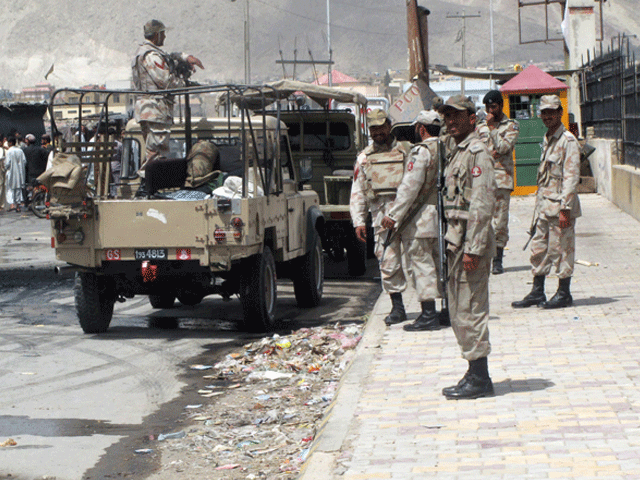“It’s been more than a month we’ve been issuing Tehran with reminders but Tehran is yet to get back to us with even a plausible explanation for the delay,” he says. And this lukewarm response, he confides, can unnecessarily raise suspicions in Islamabad and create a trust deficit. “We’ve always cooperated with Iran vis-a-vis Jundullah so obviously, we expected them to reciprocate,” he complains.
So grave are the reservations developing in Islamabad, the official is expecting Pakistan to get tough. However, Foreign Office spokesman Abdul Basit insists that Islamabad is “confident” that Iran will share its findings with Pakistan as soon as the investigation is concluded. Meanwhile, Iran’s ambassador to Pakistan did not respond to The Express Tribune’s requests for information about updates on the investigation.
Despite the Foreign Office’s professions, say foreign policy experts, the relationship between the two countries has not been hunky dory despite the many agreements inked by the two to improve border security. Iran has long held Jundullah chief Abdolmalek Rigi responsible for over a dozen terrorist attacks inside its territory, the last being the attack on Iranian Revolutionary Guard Corps in October last year, which killed more than 40.
While Iranian President Mahmoud Ahmedinejad was guarded in his response at the time, the Iranian Foreign Minister was not so circumspect. “[The group responsible for the attack] cross into Iran illegally; they are based in Pakistan and the hands of those behind the crimes in southeast Iran must be cut,” he said at the time. In a subsequent visit to Pakistan, Iranian Interior Minister Mostafa Mohammad Najjar demanded Pakistan handover Rigi. But Islamabad’s assurances that Rigi was not in Pakistan and that Jundullah was not using Pakistan as a springboard for attacks in Iran fell on deaf ears. Even so, the Foreign Office kept insisting that “forces” were out to “spoil” Islamabad-Tehran relations but that the ties were strong enough to survive such attempts.
Rigi was finally arrested in February this year, an arrest both countries attempted to take the credit for. March saw the release of Iranian cultural attaché Heshmatollah Attarzadeh who had been kidnapped in 2008. Islamabad insisted that Attarzadeh had been taken to Afghanistan and that Pakistan had used its resources and intelligence network to recover the abducted diplomat. But Iranian ambassador to Pakistan Mashallah Shakiri told the Pakistani media that Attarzadeh’s release was secured by the Iranian security forces and that Pakistan had not helped a jot.
Published in the Express Tribune, June 10th, 2010.








1732343209-0/BeFunk_§_]__-(36)1732343209-0.jpg)








COMMENTS (1)
Comments are moderated and generally will be posted if they are on-topic and not abusive.
For more information, please see our Comments FAQ